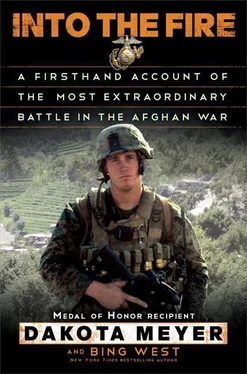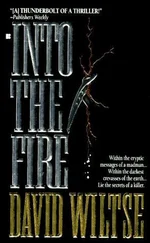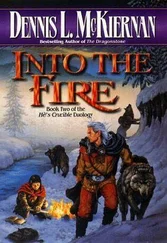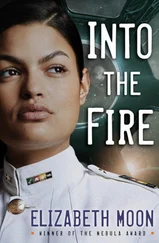Oh, nice. Staff Sgt. soon-to-be Gunnery Sgt. Kenefick needed the lowly corporal’s help. I trotted toward him, stopped, assumed parade-rest posture, arms locked behind my back, chest pushed forward in the wide open, and pasted a respectful expression on my face.
“What does the staff sergeant wish the corporal to do?”
Another burst from the AK.
“This is no time to be a smart-ass, Meyer!”
A few more rounds, still way high. I’m locked in parade rest.
“Aye, Staff Sergeant.”
He balanced the handset, considering whether to throw it at me. “Meyer, hurry up!”
He had started calling in the artillery mission, and when I got to him he was asking me, “What do I say now?”
“Left one hundred, drop two hundred,” I said.
He repeated it on the radio.
“What now?” he asked.
“Fire for effect,” I said, “should be dead on.”
“Okay, fire for effect,” he repeated over the radio.
We settled behind some sandbags. Even before the shells landed, two of our Askars rushed up with their brand-new 203s, which are short, wide-barreled weapons that fire 40-millimeter grenades the size of a man’s fist. They plunked a few shells toward the shepherd and puffs of orange powder bloomed across the hillside. By mistake, the Askars were shooting training rounds, not explosive rounds.
The shepherd scampered away. If he is still alive, he probably enlivens campfires in the Hindu Kush with his account of gas warfare. In old age, he will blame his ailments on a chemical weapon that was a mixture of talcum powder and red dye.
The artillary rounds landed right on target. After the fire had ended, Staff Sgt. Kenefick looked at me and slapped me on the back.
“I’m pretty good at that, aren’t I!” he said.
We both burst out laughing. Somehow that stupid incident broke the tension between us. Over the next few days, we learned how to divide the tasks and work together.
Dangam, a dusty border hamlet, had changed allegiances several times in the long war. The border meant nothing to the tribes. Smugglers, commuters, Taliban, local cops—everyone seemed to get along, like in the intergalactic bar in Star Wars . We couldn’t figure out much of what was going on. Dodd Ali, my closest Askar friend, said he and the other Askars were outsiders like us, so they had no idea who might be Taliban.
I watched the town’s daily routines. The sub-governor calmly went to work inside the district compound below our outpost. The police chief puttered around in his truck, as though he didn’t have a care in the world. Night after night we saw the bobbing flashlights going over the pass into Pakistan. We didn’t have a clue who was coming or going, or why.
Our Askars insisted the Taliban were skirting around our outpost. They pointed at figures about seven hundred meters away, walking single-file, and shouted, “Dushmen! Dushmen!” Our rules of engagement required that any target display both hostile capability, like a rifle, and hostile intent, like aiming at us. I couldn’t plug someone for walking single-file. While we watched the district compound from one hilltop, insurgents were watching from other hilltops and chatting on their handheld radios. Our Askars said they used simple codes, like “the chickens [mortars] and horses [rockets] are in position.”
At Lt. Johnson’s insistence, Dog Company had sent out a squad from Monti to stand guard with us on election day. Jeffords’ squad brought a badminton set from a care package from the States. We decided to set it up on the helo landing zone, the most exposed place on base, and have a tournament. We called it the No Taliban Badminton Tournament 2009, and we swatted the shuttlecock back and forth, hoping to lure a dushmen into shooting.
Dodd Ali asked if he could shoot the shuttlecock out of the air with his squad automatic weapon, which shoots ten rounds a second. I said no; if he missed with the SAW, I’d be splattered all over the sandbags. I was “Meyetta” to Dodd Ali. He couldn’t believe I had ridden on the back of my cow, Tinker Bell. He was fun to talk to, open, friendly, and fearless. We would sit around talking and asking questions of each other like kids in middle school, learning as much as we could about each other. He proudly cleaned his SAW five times a day and absorbed every tip I gave him about shooting. He was the most disciplined Askar on base. That’s why we gave him the SAW in the first place.
Staff Sgt. Kenefick and I figured the local officials were crazy to have announced the voting location in advance. The night before the elections, we therefore switched the voting station to a small store outside of town. We sent the Askars into town at morning prayer to redirect the voters.
The insurgents liked to shoot 107-millimeter rockets—light, three-foot-long projectiles fired from short tubes that were set up rapidly on temporary bipods. A man can carry a launcher on his back, and the rocket can be aimed directly at the target. The damn things can go five miles.
The voting started at 7 A.M. I heard the first rocket foomp at 7:01. It ripped apart the front of the empty district compound where a hundred voters would have been lined up had we not moved them a kilometer away. The empty center took twenty-one rounds in the next two hours. The Taliban had their orders to hit that building, so they did, stupidly, again and again. But they hit it well.
I left Dangam with a healthy respect for the skill of the rocket gunners and their cold hearts, willing to kill their own relatives. They didn’t do so this day, but they’d tried.
Staff Sgt. Kenefick and I headed back to Monti, while the over-full ballot box headed for Kabul. Staff Sgt. Kenefick and I were okay with each other. Absolutely.
Chapter 6
OUT OF THE SMOKE
A few weeks later, it was Combat Outpost Monti’s turn to feel the full force of the rockets. In early September, just before dinner one evening I heard the foomp, foomp of two rockets launched from tubes somewhere up on the hill above us. We started taking concentrated rocket fire on the Afghan side of the base. We had taken RPG shots before, of course, but several rockets incoming barrage-style was a new experience. The dushmen were firing on a direct lay from a hilltop to the southeast, with the gunners looking straight down at Monti.
They were in the air, screeching our way with their very rocket-like sound. You don’t have time to react. The hair on the back of your neck tingles for a split second before the bang. I jumped on the .50-cal and pumped out rounds, while Lt. Johnson tried to lay an azimuth for our mortars. Then my gun jammed.
The lieutenant and I ran into the concrete watchtower at the main gate to get another gun. No sooner had I hopped on a 240 machine gun than a rocket shook the tower. An Askar picked up an RPG to shoot out the other window. I grabbed it out of his hands and placed it under my feet. The back-blast in that enclosed space would have fried us. I shouted down at Doc Layton to start shooting back. You need to get your firepower going if you want to keep the enemy from popping up and firing. It’s all about volume, aggression, overpowering them with a flood of bullets and explosions.
“I’m a doc!” he yelled back. In our previous skirmishes, he had been there to patch us up, not to kill anybody.
“C’mon, Doc. Corpsmen can shoot back when they need to!” I yelled.
He started firing his peashooter M4 rifle toward the dushmen moving on the hill at least seven hundred meters away, probably setting up more rockets. A ridiculous range for the M4. We heard a sudden screech before another rocket slammed into the side of the tower. An Askar tapped me on the shoulder. He had a shocked look on his face and was pointing down. The bone was sticking out of his right shin where his foot had been, and blood was gushing out.
Читать дальше












